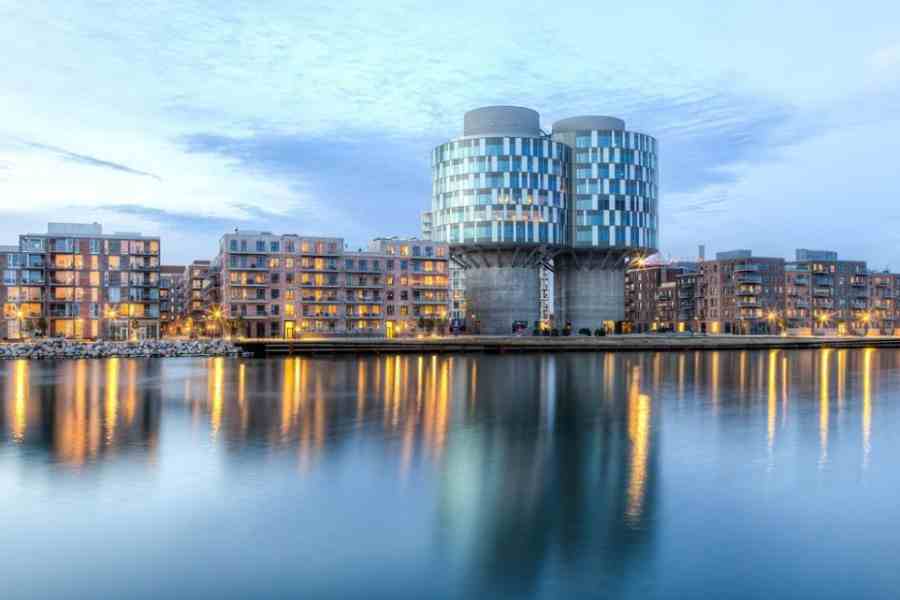Build bridges
Sir — Adda was once integral to Bengali life. But the days when neighbours would stop to chat while shopping at the local grocer are long behind us as online shopping apps have rendered such stores redundant for many. Studies have shown how techno-capitalist innovations — grocery delivery apps are an example — have exacerbated the loneliness epidemic. Convenience clearly comes at the cost of meaningful social interactions. But Nordhavn, a city in Copenhagen, might have figured out a way to bridge the gap between convenience and conviviality. The city is designed for easy living and has shops with all the necessary facilities within five minutes from residences. One hopes that these conveniently located stores will encourage people to converge there.
Brinda Basu, Calcutta
Right direction
Sir — The Supreme Court’s overruling of its 1967 S. Azeez Basha versus Union of India judgment regarding the Aligarh Muslim University’s minority status is significant (“Gone: AMU minority dead end”, Nov 9). An institution is granted minority status under Article 30(1) of the Constitution. This ensures that the Muslim community, which is socioeconomically deprived according to the Sachar Committee report, plays a significant role in the administration of the AMU.
Prasun Kumar Dutta, West Midnapore
Sir — Overruling a 1967 judgment of the apex court, a seven-judge Constitution bench decided to set up a three-judge bench to decide whether to grant minority status to the AMU. But it did clear the way for the granting of such a status. In fact, the former Chief Justice of India, D.Y. Chandrachud, also emphasised the AMU’s cultural and educational contributions.
This verdict serves as a stinging rebuke for the right-wing, which had sought
to defame the prestigious university. With its illustrious alumni and diverse range of academic programmes, the AMU has cherished the vision of its founding fathers, especially Sir Syed Ahmad Khan, who had advocated for inclusive education in spite of the AMU being a minority-dominated institution.
Aayman Anwar Ali, Calcutta
Sir — Even though the Supreme Court stopped short of designating the AMU as a minority institution, it provided a detailed framework for assessing whether an institution qualifies as minority-owned and administered under Article 30(1) of the Constitution. This should serve as a reminder for the Bharatiya Janata Party government of the importance of protecting the customs of religious minorities. The BJP is trying to pass the Uniform Civil Code, which goes against this principle. The State cannot remove constitutionally guaranteed special protections for religious and linguistic minorities.
M. Jeyaram, Sholavandan, Tamil Nadu
Sir — The Supreme Court’s decision regarding the AMU raises concerns about the prioritisation of identity over inclusivity in higher education, potentially creating barriers for students from other communities. This decision may lead to debates on balancing the rights of minority institutions with broader national integration.
Syed Ashraff, Akkikavu, Kerala
Stark contrast
Sir — In his article, “Different yardsticks” (Nov 8), R. Rajagopal rightly pointed out that the media adopted two different approaches while covering the deaths of G.N. Saibaba and Ratan Tata, respectively. But the media were not the only ones who were partial. For instance, while the rape convict, Gurmeet Ram Rahim Singh, has been given 15 paroles in four years, Saibaba did not even get permission to attend his mother’s funeral. He died shortly after his release, after spending barely seven months out of prison.
Sujit De, Calcutta
Sir — Both G.N. Saibaba and Ratan Tata deserve salutations. But the disparate space accorded to their demises by the media underscores the Rightward shift of the fourth estate, which has moved away from constitutional values. As Edward S. Herman and Noam Chomsky had discussed, public consent is manufactured by consciously building relative prominence or obscurity of simultaneous events through editorial policies of the corporate media.
Shomnath Chakravarty, Calcutta
Sir — While Ratan Tata basked in universal appreciation for his philanthropy, G.N. Saibaba’s contributions to society went unrecognised; he was, in fact, punished for them. The media were careful to measure the two with “Different yardsticks”, toeing the line drawn by the powers that be.
K. Nehru Patnaik, Vishakhapatnam
Sir — The rich are clearly accorded more space in the media than the poor. As Tulsidas had written in Ramcharitmanas, there is no sorrow like poverty. Lucky are the wealthy, even in death.
R. Prakash, Delhi
Sir — Social activists like G.N. Saibaba and Stan Swamy devoted their lives to the service of the poor and the marginalised only to be rewarded with fictitious allegations. India owes a much greater debt to Saibaba than it does to Ratan Tata for the work the former did for the uplift of the poor. But while the media loudly mourned the demise of Tata, they were disgracefully stingy about the death of Saibaba, who might have lived longer if his body had not been weakened by State persecution.
Kajal Chatterjee, Calcutta
Memorable era
Sir — In its original avatar, Firpo’s was a hub for foreigners and locals alike (“Firpo’s great-nephew on first visit to city”, Nov 10). A visit to Calcutta by the great-nephew of Angelo Firpo, Enrico De Barbieri, revived these golden memories.
Murtaza Ahmad, Calcutta










